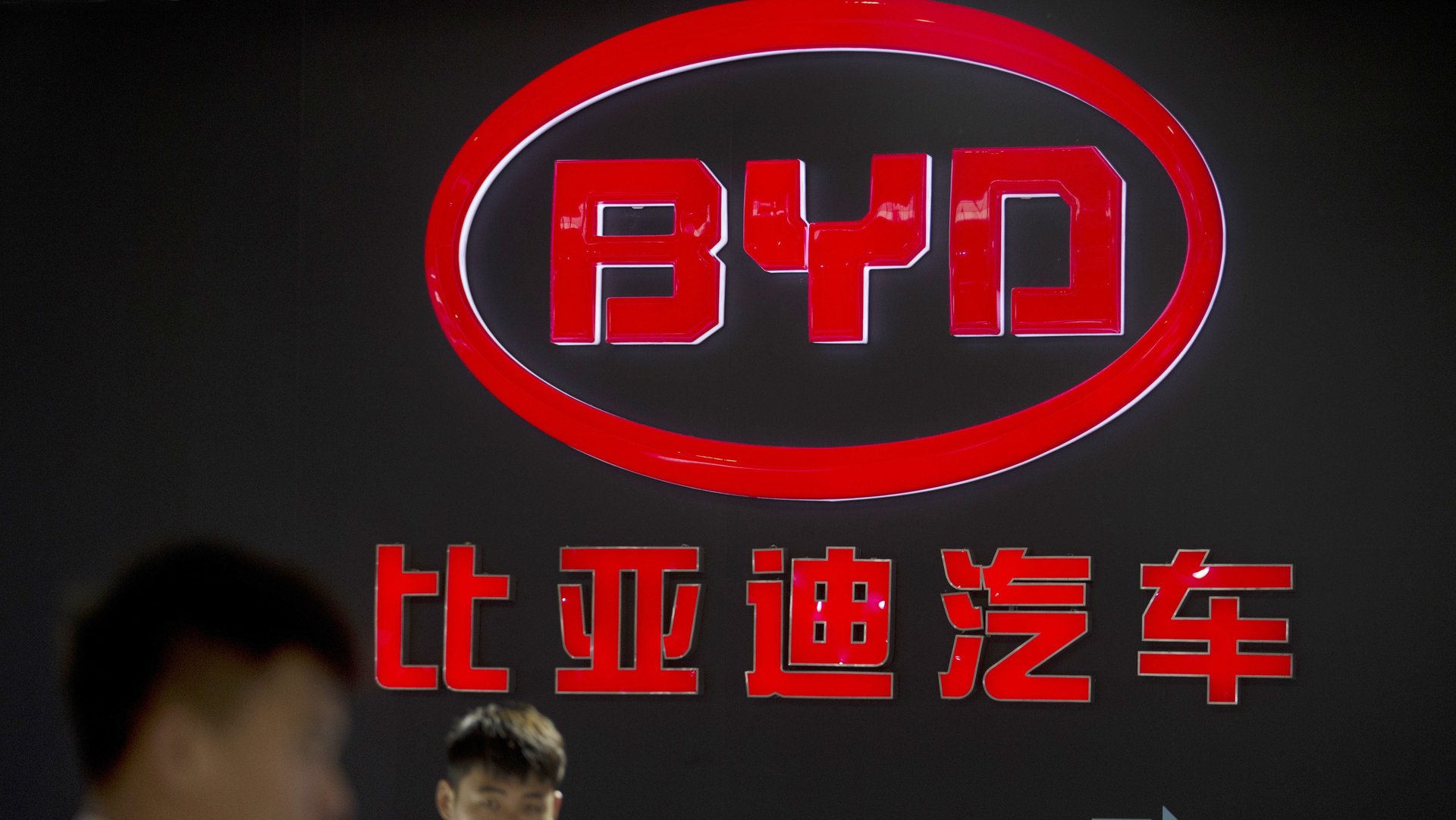A private car maker is frantically funding public transport in China
BYD, China’s largest electric car maker, has set up a nearly $1 billion private fund to finance monorail systems in 20 Chinese cities, as it looks to China’s multi-billion dollar public transport market to expand its business.


BYD, China’s largest electric car maker, has set up a nearly $1 billion private fund to finance monorail systems in 20 Chinese cities, as it looks to China’s multi-billion dollar public transport market to expand its business.
The company said last week (link in Chinese) that its wholly-owned subsidiary BYD Investment Management is setting up the fund. Over 70% of the investment, or five billion yuan ($760 million) is from Western Trust, a northern China-based investment company. Most of the rest, 1.25 billion yuan ($190 million), is coming from BYD Investment Management. The fund announcement comes in a year that saw BYD sales and earnings take a severe hit in the first half, after China started pulling back on the subsidies that have fueled the growth of its electric car market.
BYD, which is backed by billionaire investor Warren Buffett, says it became the first privately-run Chinese company to enter the mass transit market in October 2016, when it launched a 4.4-km (2.7 miles) showcase railway at its headquarters in Shenzhen. BYD says it spent five years and around 5 billion yuan (about $760 million) on developing the system, called SkyRail.
In September, it began operating China’s first commercial monorail train service in the northwestern city of Yinchuan. There are seven trains running on the 6-km line (3.7 miles). BYD has plans to build monorails in some 20 cities with an average length of 20 kilometers (12 miles). The fund will invest no more than 20% of a single city project’s cost.
BYD’s big bet on public transport uses the company’s core technology—its batteries power the trains on the monorail system, an elevated system in which trains run on a single track. The trains can carry up to 30,000 passengers an hour one way at speeds up to 80 kilometers per hour (50 mph), says BYD. The cost of a monorail per kilometer averages $30 million, it adds, about a third of the cost for a subway, since the system uses lighter trains and doesn’t require the building of underground tunnels.
BYD is making a foray into a sector that is dominated by state-owned companies that receive heavy government subsidies. For instance, China Railway Rolling Stock Corporation, the country’s largest supplier of rail equipment, builds most of the countries’ subways and trains. The company was among the top 10 firms (link in Chinese) in terms of government subsidies received among nearly 3,000 listed Chinese companies in 2016.
But BYD still sees huge potential. China alone has around 300 cities that are suitable for monorails, a market worth more than 3 trillion yuan ($450 billion), Wang Chuanfu, the founder of BYD, said at an urban transport forum (link in Chinese) held in Mexico last December. An analyst at Ping An securities told state-run newspaper China Daily that the company could earn $750 million in monorail revenue this year. (An analyst at Hong Kong’s Everbright Securities said (paywall) monorail revenues are unlikely to impact the companies’ earnings statements for three to five years.)
Chinese electric car companies are also looking at building public transport overseas.
BYD over the weekend (Dec.9) announced it would partner with the Moroccan government to build a 15-km (9.3 miles) SkyRail, according to a company statement sent to Quartz. In October, the company also signed an agreement with Egypt’s port city of Alexandria to build a 128-km (79 miles) monorail there. BYD has already been helping the Philippine city Iloilo to build a monorail transit system, expected to begin operations in 2019.
Geely, another Chinese private car maker, bought London Taxi Company (paywall), the UK-based manufacturer of London’s traditional cabs, in 2013.
Meanwhile, foreign companies are also looking to China’s huge public transport sector. Canada’s Bombardier, for example, supplies high-speed trains and maintenance services in China, earning about $3 billion to $5 billion in revenues there a year.